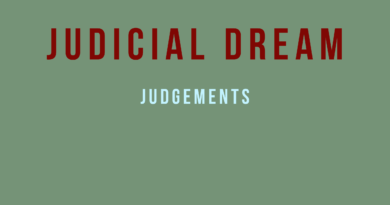ART 137
RAJENDRA KHARE vs SWAATI NIRKHI, SC 2021
The basic philosophy inherent in granting the power to the Supreme Court to review its judgment under Article 137 is the universal acceptance of human fallibility.
In the Constitution, substantive power to rectify or review the order by the Supreme Court has been specifically provided under Article 137.
The Rules have been framed under Article 145 of the Constitution namely “The Supreme Court Rules, 2013” in which Order XLVII deals with the review.
The jurisdiction of this Court to review is, thus, specifically provided in the Constitution as well as Rules framed under Article 145.
The power of review of the Supreme Court as envisaged under Article 137 of the Constitution is no doubt wider than review jurisdiction conferred by other statutes on the Court. Article 137 empowers the Supreme Court to review any judgment pronounced or made, subject, of course, to the provisions of any law made by Parliament or any rule made under Article 145 of the Constitution.
An application to review a judgment is not to be lightly entertained and this Court could exercise its review jurisdiction only when grounds are made out as provided in Order XLVII Rule 1 of the Supreme Court Rules, 2013 framed under Article 145 of the Constitution of India.
In view of the above, it is clear that scope, ambit and parameters of review jurisdiction are well defined. Normally in a criminal proceeding, review applications cannot be entertained except on the ground of error apparent on the face of the record. Further, the power given to this Court under Article 137 is wider and in an appropriate case can be exercised to mitigate a manifest injustice. By review application an applicant cannot be allowed to reargue the appeal on the grounds which were urged at the time of the hearing of the criminal appeal. Even if the applicant succeeds in establishing that there may be another view possible on the conviction or sentence of the accused that is not a sufficient ground for review. This Court shall exercise its jurisdiction to review only when a glaring omission or patent mistake has crept in the earlier decision due to judicial fallibility. There has to be an error apparent on the face of the record leading to miscarriage of justice to exercise the review jurisdiction under Article 137 read with Order 40 Rule 1.
There has to be a material error manifest on the face of the record with results in the miscarriage of justice.



